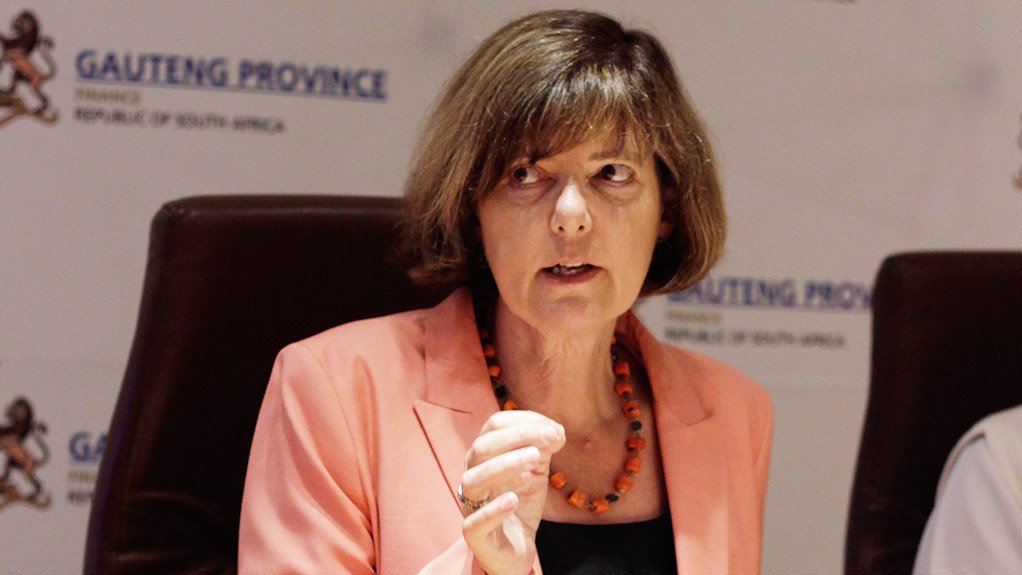Finance MEC Barbara Creecy on Tuesday tabled a R103.4-billion provincial budget for Gauteng, outlining key interventions to achieve inclusive economic growth and expand service provision.
Of the overall budget, R41.6-billion was allocated to infrastructure, which included the construction of roads, hospitals, clinics, schools and the maintenance of existing public property.
“We are conscious of the role that infrastructure delivery plays in the facilitation of the flow of goods, information and factors of production between buyers and sellers,” she said.
An estimated R10-billion in additional funds would be invested through public–private partnerships in the city region to develop infrastructure and grow the manufacturing sector.
Creecy further highlighted that, of the funds allocated for infrastructure, R5.2-billion had been allocated for human settlements, R3-billion for education, R2.3-billion for roads and transport and R1.9-billion for healthcare.
The human settlements infrastructure budget would assist in the development of the provinces megahousing projects, as well as the revamping of the province’s mining towns.
The roads and transport infrastructure budget would be spent on upgrading the K46 from William Nicol road to the N14 in Diepsloot to a dual carriage; the rehabilitation of the R554 between Johannesburg and Lenasia; the rehabilitation of the N14 from Brakfontein to Hendrik Potgieter road; and the upgrade of Solomon Mahlangu drive from the N4 highway to Mamelodi to a dual carriageway.
The healthcare infrastructure budget would be spent on upgrading various hospitals around the province, including the Sebokeng, Thembisa and Helen Joseph hospitals, as well as on building the new Lillian Ngoyi Hospital.
The budget allocation for education infrastructure would be used to build 12 new schools in the province, upgrade 26 existing schools to align information and communications technology requirements and rehabilitate 123 other existing schools.
Creecy emphasised that health and education were the main priorities for government and noted that the Gauteng Department of Education (GDE) remained the single largest budget item in the province.
The GDE’s budget increased from R36.43-billion to R39.06-billion, while the Department of Heath was allocated R37.4-billion, an increase of R2.07-billion from the previous year.
“As part of targeted interventions to grow the economy and reduce unemployment in the Gauteng city region, government is allocating R1.3-billion this year to the Department of Economic Development to drive economic development in the province,” she said.
This included R195-million set aside to enhance local economic activity by refurbishing existing industrial zones.
To support emerging industries and the modernisation of the economy, the Innovation Hub was allocated R95-million.
These initiatives were aimed at fighting youth unemployment by providing opportunities to young people in township areas.
“Gauteng is committed to managing its finances in a manner that is transparent and builds public confidence,” she said.
EMAIL THIS ARTICLE SAVE THIS ARTICLE
To subscribe email subscriptions@creamermedia.co.za or click here
To advertise email advertising@creamermedia.co.za or click here











